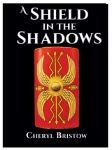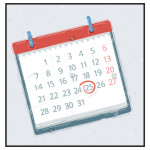 Cheryl BRISTOW is a Canadian writer, author of an epic historical romance novel. Her novel took blood, sweat, and tears, along with an enormous effort that amounted to a great sense of achievement and self-satisfaction.
Cheryl BRISTOW is a Canadian writer, author of an epic historical romance novel. Her novel took blood, sweat, and tears, along with an enormous effort that amounted to a great sense of achievement and self-satisfaction.
Her book is available at AMAZON.
 About writing that book – count the cost first!
About writing that book – count the cost first!
Have you ever heard the expression, “Everyone has a book somewhere inside them?” I suspect it is probably true, but should you write it?
To answer that, ask yourself these questions before you embark on some whim that will leave you frustrated and feeling guilty if you do not finish it, or judged if you receive a stream of rejection letters.
Writing for the right reasons
Why do you want to write your book? Is it because writers are well paid? Very few are.
Traditional publishing payments to authors are about 5-12 percent of the cost of each book they sell. A novel in Canada must sell 5,000 copies to be a best seller. For a non-fiction book, the number is even lower.
Self-publishing considerations
If you self-publish you must pay at the outset for the work the publishing company does on your behalf, and then you may receive a reasonable return on your investment for each book you sell, but you must still order and pay for the books you will be selling yourself, and that may cost you more than half the cover price of the book, plus shipping. The more you order of your own book, the lower the price, but do you have room for storage for multiple boxes of your own book? Are you prepared to stomp the streets to sell your book? And what do you do if you cannot sell them all?
Self-publishing my own novel, which is, by the way, a multi-award winner, has cost me far more than I have ever received in royalties. No matter how good your book is, agents and publishers are as interested in the size of your following on your social media platforms as they are in the quality and subject matter of your book, because every little bit of attention you can muster is what might create a sale, and if you do manage to get a publisher or self-publish, you will need to market your own book heavily.
Who do you think you are?
How many Canadian authors can you name? Louise Penny, Margaret Atwood , Alice Munro and a few others may come to mind, but there are thousands of writers in Canada whose name you are likely to have never heard. Just check any regional or national writer’s association.
There are many people who do not read much once their school days are over, and most readers, including me, look for familiar names in the book store and on library shelves. That is why the local drug store, Costco and airport boutiques only carry the best-selling names. Finding your readership when so many people depend so much on name recognition is hard.
Once, I had an interesting conversation with Chief Billy Diamond, noted Canadian Cree chief, entrepreneur and evangelist among his own people. He told me that regularly members of his Cree nation and others would approach him with what they thought was a great idea. His standard response was, ‘Yes. Sounds good, but don’t expect me to do it for you. If the Lord gave you that idea, then you need to pursue it yourself.”
If he had said that to me, I would have shrunk and exclaimed, inwardly of course, “But, but, but, Chief, it is you who has the money! You have the influence and you have the know-how. I don’t. I am only little me. There is no way I can make this happen.”
When it comes to the kinds of things Chief Billy Diamond could and did do, I would be lost. But the same thing has happened to me in my field. I have had several people over my lifetime suggest a great idea to me. It was clear from the context that they wanted me to grab it and run with it myself. The problem is that if an idea does not catch my imagination or my passion, I cannot do it.
Writing will cost you?
You have to consider the cost as well as the value of what your efforts will be. Writing a book can take months, or even years, as my historical novel, “A Shield in the Shadows” did. It demands discipline, perseverance, talent, a specific target audience and training in the discipline of writing your kind of book, be it a memoir, a novel or a textbook, and it usually requires a little luck and a lot of money.
If you aspire to have your book published by a traditional publisher, you will often have to pass through a ‘gate-keeper’ first. This may be an agent who takes your manuscript, or more likely your synopsis and introductory letter, and vets them, then tells you whether they are interested in taking you on. There are thousands of writers in Canada and about thirty literary agencies, so the competition is tough. If you do catch their interest, they may tell you what to change and how much to cut, or enhance, to increase the likelihood that a publisher will be interested in your book. I have been told by other writers, including well-known ones, that if this happens grab the chance and run with it, even if it significantly changes the direction of your book. Not everyone is willing to do this, including me.
To reach an agent, however, you will likely have to go through a newbie staff member or perhaps some post-grad English major who has been hired to assess the sell-worthiness of all the books that are offered to the publishing house. They will be given guidelines such as, “No more dystopian Young Adult novellas or regional biographies. In fact, we only have a need right now for a keto cookbook for young adults.” Your excellent memoir or fitness instruction book or World War III novel may not be on the list of the types of books the company is looking for, and if so, you will not be considered. Some publication houses don’t even bother letting you know that your work has been rejected, so multiple submissions are now much more acceptable to a traditional publisher. The bottom line for traditional publishing houses is money. They are unwilling to invest their time, staff expertise and money in a process that will take a year and might lose them more money than it gains them. That is why so many people now are taking a serious look at publishing their own books.
Self-publishing, a worthwhile consideration?
Is self-publishing worth considering? That depends a lot on what you want to do and why you want to do it.
When you consider writing your book, part of the reason has to be simply because you must. You have a passion that will not be denied. You have experience and some excellence in writing and you are willing to put in the time and the effort regardless of whether your book is as thrilling to others as it is to you. You have a story that must come out or a point of view that needs to be heard, and the faith to believe that your life will be enriched by the process of writing it and finishing it. The rest you must consider as gravy.
You may be the only one to benefit from it, but writing it will be a source of pride and excitement and fulfillment. It may even provide release and relief from something that has been burning a hole inside you for years.
So where do you stand in writing your book?
What is your goal in writing your book? Fame? Riches? Glory? Celebrity status? These likely are unrealistic goals in writing a book. The reality is much more pedestrian. If your book is a burr under your saddle, if it is an itch that needs to be put down on paper, if it is a motivating push that needs you to organize it and get it published, then the goals, may be less lofty, but certainly more realistic and achievable. If you believe you will be pleased with your thoughts published on paper, your imaginations printed in hardcover, then the pay-off for writing your own book is not bad.
Give it serious thought before you write that first sentence.





